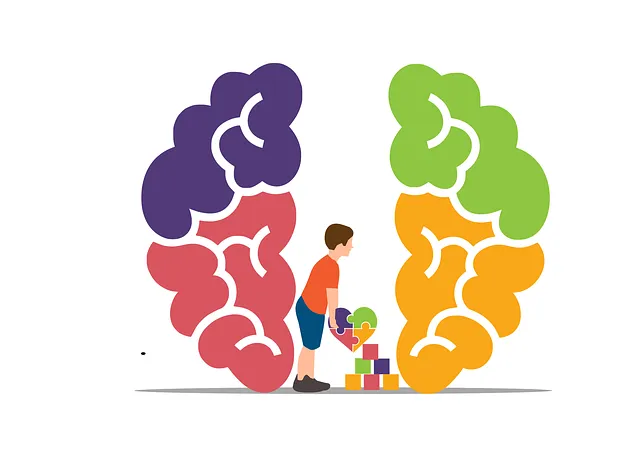Mental health advocacy, as exemplified by Kaiser in Westminster, creates supportive spaces and encourages open dialogue about mental illness. Their initiatives focus on awareness, stigma reduction, and access to quality care, empowering individuals with self-care tools and early interventions. Through holistic programs and cultural competency training, Kaiser improves mental health accessibility for diverse communities, bridging gaps often overlooked in underserved areas like Westminster.
“Mental health advocacy initiatives play a pivotal role in creating a more supportive and accessible environment for individuals struggling with their psychological well-being. This comprehensive guide delves into various aspects of mental health support, including understanding advocacy, exploring service gaps, and highlighting successful programs.
We examine Kaiser’s role in Westminster, where they offer mental health services, focusing on community engagement. Additionally, we discuss the power of alliances between organizations to revolutionize care. By addressing unmet needs, these initiatives ensure no one navigates their mental health journey alone.”
- Understanding Mental Health Advocacy: A Comprehensive Guide
- Kaiser's Role in Mental Health Care: Westminster Focus
- Unmet Needs: Exploring Mental Health Service Gaps in Communities
- Innovative Programs: Success Stories in Mental Health Advocacy
- Building Alliances: Collaboration for Effective Mental Wellbeing Initiatives
Understanding Mental Health Advocacy: A Comprehensive Guide

Mental health advocacy initiatives are crucial in creating a supportive environment and fostering open conversations about mental illness. It involves raising awareness, challenging stigma, and promoting access to quality care. Understanding mental health advocacy is essential for individuals looking to make a positive impact, especially when considering that organizations like Kaiser offer comprehensive mental health services in Westminster.
By adopting a holistic approach, these initiatives focus on various aspects such as Self-Care Routine Development for Better Mental Health, Burnout Prevention, and Mental Illness Stigma Reduction Efforts. They empower individuals to take charge of their well-being, provide tools for managing stress and difficult emotions, and encourage early intervention. Through advocacy, communities can ensure that mental health resources are readily available, accessible, and tailored to diverse needs.
Kaiser's Role in Mental Health Care: Westminster Focus

Kaiser plays a significant role in mental health care, especially in Westminster. As a leading healthcare provider, Kaiser offers a comprehensive range of services designed to support and improve mental well-being. Their presence in Westminster has been instrumental in promoting access to quality mental health care for the community. Beyond traditional treatment options, Kaiser focuses on innovative initiatives like the implementation of Community Outreach Programs, which aim to connect with underserved populations and foster a culture of self-care routine development for better mental health.
Additionally, Kaiser invests in Healthcare Provider Cultural Competency Training, ensuring that their staff are equipped to address the unique needs of diverse communities. This training underscores their commitment to providing culturally sensitive care and enhancing overall mental health outcomes. By combining these strategies, Kaiser continues to make strides in transforming mental healthcare, making it more accessible and effective for all individuals in Westminster.
Unmet Needs: Exploring Mental Health Service Gaps in Communities

In many communities, there is a significant gap in mental health services that often goes unnoticed. Exploring unmet needs within these areas is crucial to understanding the challenges faced by individuals seeking support. The demand for accessible and culturally sensitive mental healthcare practices far exceeds the resources available, especially in regions like Westminster where diverse populations reside. This disparity highlights the need for initiatives that bridge these gaps.
For instance, organizations like Kaiser Permanente strive to offer comprehensive mental health services tailored to meet the unique needs of various communities. By incorporating cultural sensitivity into mental healthcare practice, they aim to enhance mental health awareness and foster inner strength development among individuals from diverse backgrounds. Addressing these unmet needs is a vital step towards creating a more inclusive and supportive environment for everyone’s mental well-being.
Innovative Programs: Success Stories in Mental Health Advocacy

In recent years, mental health advocacy initiatives have seen remarkable success through innovative programs that focus on holistic care and mental wellness. One notable example is Kaiser’s approach in Westminster, where they’ve implemented a comprehensive suite of mental health services tailored to meet diverse community needs. This includes specialized therapy options, peer support groups, and education campaigns aimed at fostering mental health awareness. By integrating these initiatives, Kaiser has successfully built a supportive environment that encourages individuals to openly discuss their mental health struggles and seek the help they need.
These progressive strategies go beyond traditional treatment models by incorporating empathy building strategies into their core practices. Through these methods, Kaiser fosters deep connections between patients and healthcare providers, creating a safe space where vulnerability is encouraged. This personalized approach has led to improved patient outcomes and increased access to care for the Westminster community, setting a benchmark for effective mental health advocacy.
Building Alliances: Collaboration for Effective Mental Wellbeing Initiatives

Building alliances is a pivotal strategy for fostering effective mental wellness initiatives, especially in diverse communities like Westminster. When organizations collaborate, they can create comprehensive support systems that cater to various needs. For instance, Kaiser, known for its healthcare services, can partner with local community centers and mental health non-profits to offer integrated programs. By combining resources and expertise, these partnerships can provide accessible Mental Wellness solutions tailored to the unique challenges faced by Westminster residents.
Such collaborations encourage a holistic approach, incorporating Self-Awareness Exercises and Anxiety Relief techniques within reach of all. Through joint efforts, organizations can raise awareness, break down stigma, and ensure that mental health support aligns with cultural sensitivity and community engagement. This alliance-driven model ultimately strengthens the overall resilience and well-being of Westminster’s population.
Mental health advocacy initiatives, as highlighted through understanding basic concepts, Kaiser’s role in Westminster, unmet needs, innovative programs, and building alliances, are crucial in fostering effective mental wellbeing. By addressing gaps in mental health services and collaborating across sectors, we can create a more inclusive and supportive society for all. Moreover, recognizing the impact of these initiatives, such as those by Kaiser, is essential in promoting holistic mental healthcare accessibility, especially in areas like Westminster.






